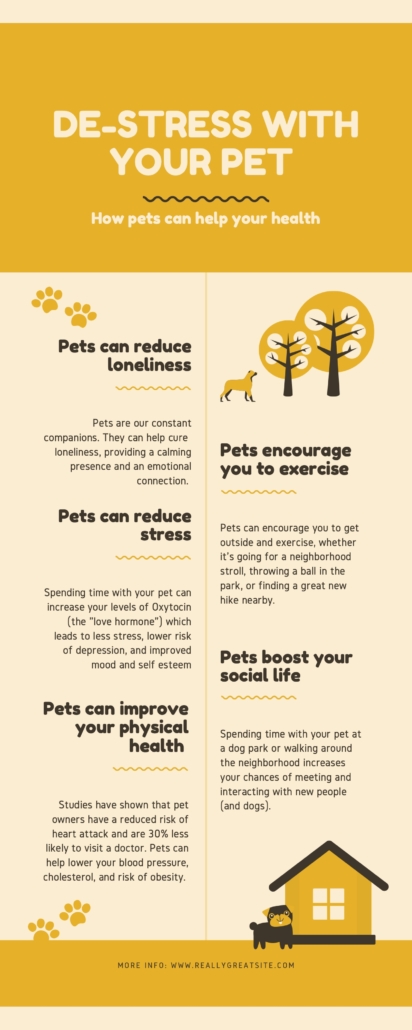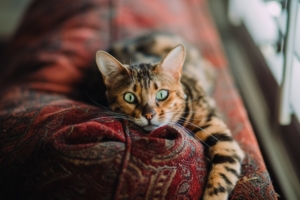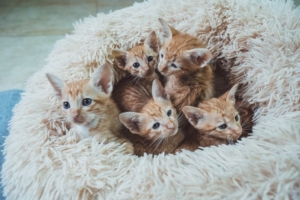August is National Wellness Month, reminding us that self-care, managing stress, and creating healthy routines is paramount to living a long and healthy life. For pet owners, your pet is probably already helping you with all of those! Most owners know what a joy it is to have a pet in their life, but many don’t know that their pet is attuned to their emotional and mental state and can help improve it just by being present.
Did you know that your pet can help you live your best life, improving your mental, emotional, and physical health?

Physical Health Benefits
The animal-human bond has been studied in depth over the past few decades and researchers have found conclusively that pets improve our physical health:
- Pet owners tend to have a lower blood pressure, both in general and in stressful situations than people without pets. Pets can often help control spikes in blood pressure due to stress more effectively than ACE inhibiting drugs. One study found that when people with borderline hypertension adopted a dog, their blood pressure decreased significantly within five months.
- Pet owners have a decreased risk of coronary disease with lower triglyceride and cholesterol levels (indicators of heart disease) than those without pets.
- Pet owners have a higher survival rate after a heart attack than people without pets.
- Pet owners who exercise with their pet regularly have a reduced risk of obesity and are able to lose weight and keep it off more consistently.
- Pet owners over the age of 65 make 30% fewer visits to their doctors than those without pets, according to another recent study.
Cats have an extra health superpower – their purr! Cats purr within a range of 20-140 Hz, which studies have shown to be medically therapeutic for us humans. A cat’s purr can not only lower stress it can also help labored breathing, lower blood pressure, help heal infections, and even heal bones. So the next time you think you feel better with your furry space heater purring on your lap, you know it’s not just in your head!
Mental and Emotional Health Benefits
Pets fulfill that basic human need for touch and a sense of togetherness. Studies have shown that spending time with your pets, talking to them, and petting them can help reduce stress and stave off loneliness. This is in part a result of your body’s release of Oxytocin, a “feel good” hormone, when you spend time with your pets. Interacting with your pets has also been shown to decrease your body’s levels of Cortisol, a stress-related hormone as well as elevate levels of serotonin and dopamine, which help you to relax.
Your furry friend may also be able to help break anxiety cycles by encouraging you to focus on their needs or entertainment rather than whatever is producing your anxiety. Your pet is your responsibility and caring for their needs can establish structure and routine in your day that not only keeps your pet calm and balanced, but can also help you in the same way.
Therapy pets often serve as a source of comfort to patients in hospitals or nursing homes and victims of trauma. Their warm presence, undivided attention, and innate compassion provide support for many people going through a wide range of physical, mental, or emotional problems. A recent survey found that 84% of post-traumatic stress disorder patients who were paired with a service dog reported a significant reduction in symptoms, and 40% of them were able to decrease their medications.
Our pets can us humans maintain healthy habits, stay connected, and find a meaning or purpose in our lives.


